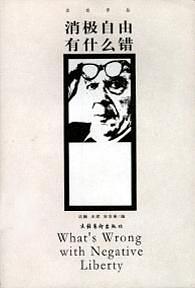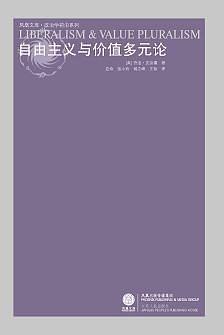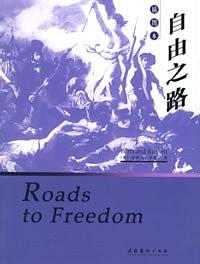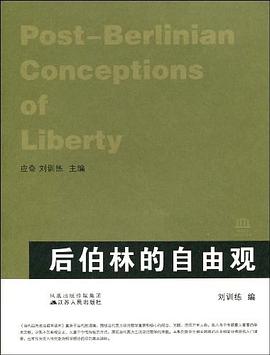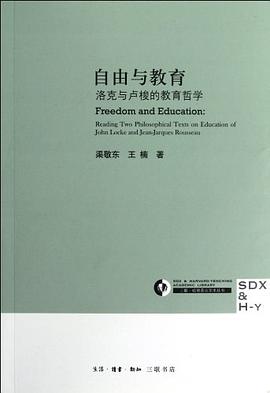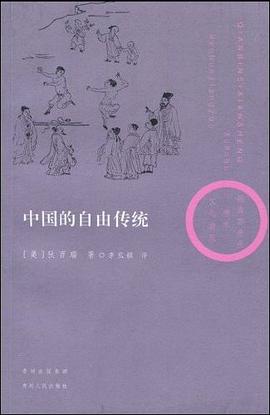

具体描述
A Theory of Justice is a widely-read book of political and moral philosophy by John Rawls. It was originally published in 1971 and revised in both 1975 (for the translated editions) and 1999. In A Theory of Justice, Rawls attempts to solve the problem of distributive justice by utilising a variant of the familiar device of the social contract. The resultant theory is known as "Justice as Fairness", from which Rawls derives his two famous principles of justice: the liberty principle and the difference principle.
[edit] Objective
In A Theory of Justice Rawls argues for a principled reconciliation of liberty and equality. Central to this effort is an account of the circumstances of justice (inspired by David Hume), and a fair choice situation (closer in spirit to Kant) for parties facing such circumstances, and seeking principles of justice to guide their conduct. These parties face moderate scarcity, and they are neither naturally altruistic nor purely egoistic: they have ends they seek to advance, but desire to advance them through cooperation with others on mutually acceptable terms. Rawls offers a model of a fair choice situation (the original position with its veil of ignorance) within which parties would hypothetically choose mutually acceptable principles of justice. Under such constraints, Rawls believes that parties would find his favoured principles of justice to be especially attractive, winning out over varied alternatives, including utilitarian and libertarian accounts.
[edit] The "original position"
Main article: Original position
Like Hobbes, Locke, Rousseau and Kant, Rawls belongs to the social contract tradition. However, Rawls' social contract takes a slightly different form from that of previous thinkers. Specifically, Rawls develops what he claims are principles of justice through the use of an entirely and deliberately artificial device he calls the Original position, in which everyone decides principles of justice from behind a veil of ignorance. This "veil" is one that essentially blinds people to all facts about themselves that might cloud what notion of justice is developed.
"no one knows his place in society, his class position or social status, nor does anyone know his fortune in the distribution of natural assets and abilities, his intelligence, strength, and the like. I shall even assume that the parties do not know their conceptions of the good or their special psychological propensities. The principles of justice are chosen behind a veil of ignorance."
According to Rawls, ignorance of these details about oneself will lead to principles which are fair to all. If an individual does not know how he will end up in his own conceived society, he is likely not going to privilege any one class of people, but rather develop a scheme of justice that treats all fairly. In particular, Rawls claims that those in the Original Position would all adopt a maximin strategy which would maximise the position of the least well-off.
They are the principles that rational and free persons concerned to further their own interests would accept in an initial position of equality as defining the fundamentals of the terms of their association [Rawls, p 11]
It is important to keep in mind that the agreement that stems from the original position is both hypothetical and nonhistorical. It is hypothetical in the sense that the principles to be derived are what the parties would, under certain legitimating conditions, agree to, not what they have agreed to. In other words, Rawls seeks to persuade us through argument that the principles of justice that he derives are in fact what we would agree upon if we were in the hypothetical situation of the original position and that those principles have moral weight as a result of that. It is nonhistorical in the sense that it is not supposed that the agreement has ever, or indeed could actually be entered into as a matter of fact.
Rawls claims that the parties in the original position would adopt two such principles, which would then govern the assignment of rights and duties and regulate the distribution of social and economic advantages across society.
[edit] The First Principle of Justice
“ First: each person is to have an equal right to the most extensive scheme of equal basic liberties compatible with a similar scheme of liberties for others.[1] ”
The basic liberties of citizens are, roughly speaking, political liberty (i.e., to vote and run for office); freedom of speech and assembly, liberty of conscience and freedom of thought, freedom of the person along with the right to hold (personal) property; and freedom from arbitrary arrest. It is a matter of some debate whether freedom of contract can be inferred as being included among these basic liberties.
The first principle is more or less absolute, and may not be violated, even for the sake of the second principle, above an unspecified but low level of economic development (i.e. the first principle is, under most conditions, lexically prior to the second principle). However, because various basic liberties may conflict, it may be necessary to trade them off against each other for the sake of obtaining the largest possible system of rights. There is thus some uncertainty as to exactly what is mandated by the principle, and it is possible that a plurality of sets of liberties satisfy its requirements.
[edit] The Second Principle of Justice
Social and economic inequalities are to be arranged so that (Rawls, 1971, p.303):
a) they are to be of the greatest benefit to the least-advantaged members of society (the difference principle).
b) offices and positions must be open to everyone under conditions of (fair equality of opportunity)
Rawls' claim in b) is that departures from equality of a list of what he calls primary goods – 'things which a rational man wants whatever else he wants' [Rawls, 1971, pg. 92] – are justified only to the extent that they improve the lot of those who are worst-off under that distribution in comparison with the previous, equal, distribution. His position is at least in some sense egalitarian, with a proviso that equality is not to be achieved by worsening the position of the least advantaged. An important consequence here, however, is that inequalities can actually be just on Rawls's view, as long as they are to the benefit of the least well off. His argument for this position rests heavily on the claim that morally arbitrary factors (for example, the family we're born into) shouldn't determine our life chances or opportunities. Rawls is also keying on an intuition that we do not deserve inborn talents, thus we are not entitled to all the benefits we could possibly receive from them, meaning that at least one of the criteria which could provide an alternative to equality in assessing the justice of distributions is eliminated.
The stipulation in a) is prior to that in b) and requires more than meritocracy. 'Fair equality of opportunity' requires not merely that offices and positions are distributed on the basis of merit, but that all have reasonable opportunity to acquire the skills on the basis of which merit is assessed. It is often thought that this stipulation, and even the first principle of justice, may require greater equality than the difference principle, because large social and economic inequalities, even when they are to the advantage of the worst-off, will tend to seriously undermine the value of the political liberties and any measures towards fair equality of opportunity.
[edit] Relationship to Rawls's later work
Although Rawls never retreated from the core argument of A Theory of Justice, he modified his theory substantially in subsequent works. The discussion in this entry is limited to his views as they stood in A Theory of Justice, which stands on its own as an important (if controversial and much criticized) work of political philosophy.
His subsequent work is discussed in the entry titled John Rawls. Of particular note is his work Justice as Fairness: A Restatement (2001), in which he clarified and re-organised much of the argument of A Theory of Justice.
[edit] Critics of A Theory of Justice
A Theory of Justice made a significant contribution to re-establishing interest in political philosophy, and so it has served as the basis for much of the debate since, meaning that it has been much criticized.
In particular, Rawls's colleague at Harvard Robert Nozick wrote a defence of libertarian justice in the aftermath of A Theory of Justice, called Anarchy, State, and Utopia, which was critical of Rawls's work. Because it is, in part, a reaction to A Theory of Justice, the two books are now often read together. Another colleague of Rawls's from Harvard, Michael Walzer, wrote a defence of communitarian political philosophy, entitled "Spheres of Justice," as a result of a seminar he co-taught with Nozick.
Robert Paul Wolff wrote Understanding Rawls: A Critique and Reconstruction of A Theory of Justice immediately following the publication of A Theory of Justice, which criticized Rawls from a roughly Marxist perspective. Wolff argues in this work that Rawls's theory is an apology for the status quo insofar as it constructs justice from existing practice and forecloses the possibility that there may be problems of injustice embedded in capitalist social relations, private property or the market economy.
Feminist critics of Rawls largely focused on the extent to which Rawls's theory could account for, at all, injustices and hierarchies embedded in familial relations. Rawls argued that justice ought only to apply to the "basic structure of society" for instance, and feminists rallying around the theme of "the personal is political" took Rawls to task for failing to account for injustices found in patriarchal social relations and the sexual division of labor.
The assumptions of the original position, and in particular, the use of maximin reasoning, have also been criticized, with the implication either that Rawls designed the original position to derive the two principles, or that an original position more faithful to its initial purpose would not lead to his favored principles. However Rawls does not deny this, he uses the original position in conjunction with an intuitive argument to justify his claim of justice as fairness.
Some critics allege that Rawls' argument is weakened in failing to denote healthcare as a primary good. Proponents respond by asserting that affordable and accessible healthcare arises as an inevitable result of the benefits attained by following through with the Original Position.
One of the most influential recent criticisms of Rawls' theory has come from the philosopher G.A. Cohen, in a series of influential papers that culminate in his 2000 book If You're An Egalitarian, How Come You're So Rich? Cohen's criticisms are levelled against Rawls' avowal of inequality under the difference principle, against his application of the principle only to social institutions, and against Rawlsian fetishism with primary goods (the metric which Rawls chooses as his currency of equality).
作者简介
John Bordley Rawls was an American philosopher and a leading figure in moral and political philosophy. He held the James Bryant Conant University Professorship at Harvard. His magnum opus A Theory of Justice (1971) is now regarded as "one of the primary texts in political philosophy." His work in political philosophy, dubbed Rawlsianism, takes as its starting point the argument that "most reasonable principles of justice are those everyone would accept and agree to from a fair position." Rawls employs a number of thought experiments—including the famous veil of ignorance—to determine what constitutes a fair agreement in which "everyone is impartially situated as equals," in order to determine principles of social justice.
Rawls received both the Schock Prize for Logic and Philosophy and the National Humanities Medal in 1999, the latter presented by President Bill Clinton, in recognition of how Rawls's thought "helped a whole generation of learned Americans revive their faith in democracy itself."
目录信息
Preface
PART ONE THEORY
Chapter Justice as Fairness
The Role of Justice
The Subject of Justice
The Main idea of The Theory of Justice
The Original Position and Justification
Classical Utilitarianism
Some Related Contrasts
Intuitionism
The Priority Problem
Some Remarks about Moral Theory
The Principles of Justice
Institutions and Formal Justice
Two Principles of Justice
Interpretations of The Second Principle
Democratic Equality and The Difference Principle
Fair Equality of Opportunity and Pure Procedural Justice
Primary Social Goods as The Basis of Expectations
Relevant Social Positions
The Tendency to Equality
Principles for Individuals: The Principle of Fairness
Principles for Individuals: The Natural Duties
The Original Position
The Nature of The Argument for Conceptions of Justice
The Presentation of Alternatives
The Circumstances of Justice
The Formal Constraints of The Concept of Right
The Veil of Ignorance
The Rationality of The Parties
The Reasoning Leading to The Two Principles of Justice
The Reasoning Leading to The Principle of Average Utility
Some Difficulties with The Average Principle
Some Main Grounds for The Two Principles of Justice
Classical Utilitarianism, Impartiality, and Benevolence
PART TWO: INSTITUTIONS
Equal Liberty
The Four-Stage Sequence
The Concept of Liberty
Equal Liberty of Conscience
Toleration and The Common Interest
Toleration of The Intolerant
Political Justice and The Constitution
Limitations on The Principle of Participation
The Rule of Law
The Priority of Liberty Defined
The Kantian Interpretation of Justice as Fairness
Distributive Shares
The Concept of Justice in Political Economy
Some Remarks about Economic Systems
Background Institutions for Distributive Justice
The Problem of Justice between Generations
Time Preference
Further Cases of Priority
The Precepts of Justice
Legitimate Expectations and Moral Desert
Comparison with Mixed Conceptions
The Principle of Perfection
Duty and Obligation
The Arguments for The Principles of Natural Duty
The Arguments for The Principle of Fairness
The Duty to Comply with an Unjust Law
The Status of Majority Rule
The Definition of Civil Disobedience
The Definition of Conscientious Refusal
The Justification of Civil Disobedience
The Justification of Conscientious Refusal
The Role of Civil Disobedience
PART THREE: ENDS
Goodness as Rationality
The Need for a Theory of The Good
The Definition of Good for Simpler Cases
A Note on Meaning
The Definition of Good for Plans of Life
Deliberative Rationality
The Aristotelian Principle
The Definition of Good Applied to Persons
Self-Respect, Excellences, and Shame
Several Contrasts between The Right and The Good
The Sense of Justice
The Concept of a Well-Ordered Society
The Morality of Authority
The Morality of Association
The Morality of Principles
Features of The Moral Sentiments
The Connection between Moral and Natural Attitudes
The Principles of Moral Psychology
The Problem of Relative Stability
The Basis of Equality
The Good of Justice
Autonomy and Objectivity
The Idea of Social Union
The Problem of Envy
Envy and Equality
The Grounds for The Priority of Liberty
Happiness and Dominant Ends
Hedonism as a Method of Choice
The Unity of The Self
The Good of The Sense of Justice
Concluding Remarks on Justification
Conversion Table
Index
· · · · · · (收起)
读后感
读了一个多月进度超慢,深涩难道,往往读的前后不搭,比哈耶克的那本《个人主义与经济秩序》不相上下,读的我都想吐了,下了个英文版本,准备看看原文的看好读不。
评分 评分在学术界,常常会出现一些流行的误读,其中一个误读是,把功利主义和自由主义看作一对死对头。 自由主义是一套政治哲学层面的思想,更准确地说,它是一个观念家族。因为有各种各样的自由主义思想,有些差异还非常大。例如,既有支持福利国家的自由主义思想,也有反对福利国家的...
评分用“多元”实现正义 对“自由”和“平等”这对不可调和矛盾的永恒追求,是人类社会前进的不竭动力。 周四的时候讲了“70年代以来的人类学——后殖民时期/后现代的人类学”。带着启蒙——现代主义——理想的西方殖民者在二战之后到20世纪中期,渐渐反思了单一的一元化“进步观...
用户评价
当我在书店的哲学区域漫步时,一本装帧朴素,书名却直击核心的书吸引了我——《A Theory of Justice》。我并非政治哲学领域的专家,甚至在翻开它之前,我对“正义”这个词的理解还停留在日常的公平与合理层面。然而,这本书的书名本身就带有一种宏大的野心,它承诺的不仅仅是对某种特定情况下的正义的探讨,而是一种关于“正义”本身的理论构建。我当时就感觉到,这不仅仅是一本书,更是一次思维的邀约,一次对人类社会最基本原则的深刻追问。我当时脑海中浮现的,是各种关于社会不公的画面:贫富差距的悬殊,机会的不平等,以及在权力结构下个体遭受的压迫。我迫切地想知道,在这位作者的理论体系中,这些棘手的问题将如何被解析,又将指向何种可能的解决方案。这本书的气质,一种严肃而又充满探索精神的气息,让我在嘈杂的书店内,仿佛找到了一处静谧的角落,可以开始一段属于自己的哲学之旅。我购买它的动机,更多的是一种好奇心,一种想要理解“为什么”和“如何”的好奇心,以及一种对更美好、更公正社会的隐秘渴望。这本书的外观,虽然低调,但却散发出一种知识的厚重感,它不像那些哗众取宠的书籍那样试图用华丽的封面吸引眼球,而是依靠其内在的价值,去打动那些真正寻求深度思考的读者。
评分我第一次意识到《A Theory of Justice》这本书的存在,是在一次偶然的学术讲座上。主讲人是一位在政治哲学领域享有盛誉的学者,他在谈论到现代社会面临的种种挑战时,多次引用了这本书中的思想。当时,我对于政治哲学的了解还非常有限,但“正义”这个词本身就对我有着强大的吸引力。我一直觉得,一个社会的健康发展,离不开对“正义”的深刻理解和不懈追求。而这本书的书名,直接而有力地宣告了它将要构建的是一种“正义的理论”,这意味着它将不仅仅是零散的观点,而是一个系统性的、逻辑严密的思想体系。我当时就对这本书产生了浓厚的兴趣,我渴望了解,在作者的理论框架下,“正义”究竟意味着什么?它将如何指导我们去理解和构建一个更加公平、合理的社会?我抱有的期待,是这本书能够为我揭示正义的根本原则,并为我在面对复杂的社会问题时,提供一种深刻的洞察力。
评分我记得第一次与《A Theory of Justice》这本书“相遇”,是在一个安静的午后,我正漫无目的地在一家独立书店里浏览。当时,我对哲学领域还知之甚少,对“正义”的理解也仅仅停留在日常生活中最朴素的“公平”二字。然而,这本书书名简洁却极具力量,它所传达出的“理论”二字,仿佛预示着一种系统性的、深入的探讨。我当时就被这个书名所吸引,它不像其他一些书籍那样试图用耸人听闻的标题来吸引读者,而是用一种直接而严肃的方式,宣告了其研究的深度和广度。我当时脑海中浮现的,是各种社会新闻中关于贫富差距、机会不均等、以及权力腐败的报道,我对这些现象感到困惑,也希望能够找到一些更深层次的解释。这本书的书名,就像是为我打开了一扇通往理解这些复杂社会问题的窗口,它承诺的不仅仅是一种观察,而是一种理论的构建。我当时就感觉到,这本书可能不仅仅是提供一些哲学上的探讨,而是一种能够触及社会根本制度,并为之提供评判标准的思想武器。
评分当我在一个充斥着各种畅销书和流行读物的书店里,目光偶然落在《A Theory of Justice》这本书上时,我感觉到了一种久违的宁静。它不像那些封面设计得花哨、标题党味十足的书籍那样试图立刻抓住我的眼球,而是以一种朴素而又庄重的姿态,吸引着我。书名本身——“A Theory of Justice”(一种正义的理论)——就散发出一种深刻的哲学气息,它不是在谈论某种具体的社会事件,也不是在提供简单的生活建议,而是在试图构建一个关于“正义”本身的理论体系。我当时正在思考,为什么在我们所处的社会中,会存在如此巨大的贫富差距,为什么有些人能够轻易获得成功的机会,而另一些人却终生挣扎在温饱线上?这些问题常常让我感到困惑和无力。而这本书的书名,仿佛为我打开了一扇新的大门,它承诺的不仅仅是对“正义”的探讨,更是要构建一种能够指导我们理解和评价社会制度的理论。我迫切地想要知道,在这位作者的理论体系中,“正义”究竟意味着什么?它又将如何帮助我们去审视和改进我们所处的社会。
评分在我决定拿起《A Theory of Justice》这本书的时候,我正经历着一段对社会制度的深切反思期。我当时观察到,在我们所生活的社会中,财富和机会的分配存在着显著的不平等。有些人似乎生来就站在更高的起跑线上,而另一些人则需要付出数倍的努力才能获得相对微薄的回报。这种现象让我感到困惑,也让我开始思考:我们应该如何看待和处理这种不平等?一个社会应该以何种原则来分配其有限的资源和机会?我查阅了一些关于社会公平、伦理价值以及政治哲学的资料,但总觉得缺乏一个能够将这些碎片化的思考整合起来,形成一个有说服力的理论体系。而《A Theory of Justice》的书名,恰好触及了我内心最深处的疑问。它不仅仅是在讨论“正义”这个抽象的概念,更是在尝试“构建一种关于正义的理论”。这让我觉得,这本书可能是一种能够为我提供清晰的思考框架,帮助我理解社会运作的根本逻辑,并为之提供评判标准的思想指南。
评分许多年来,我一直被一个问题所困扰:在一个人人追求自身利益的社会中,我们如何才能确保最弱势群体的基本权利得到保障?我曾阅读过许多关于社会福利、人权保障以及道德哲学的书籍,但总觉得,这些讨论往往停留在表面,缺乏一个能够从根本上解决问题的理论框架。直到我偶然翻阅到《A Theory of Justice》这本书。它的书名,就像是一声强有力的宣告,它承诺要构建的是一种关于“正义”的理论,一种能够解释社会结构,并为之提供评判标准的理论。我当时就感到,这本书可能不仅仅是提供一些关于如何“做好人”的道德建议,而是要从更宏观的层面,去探讨如何设计一个公正的社会制度。我期待的是,通过这本书,能够理解正义的根本原则,它如何能够在复杂的人类社会中得以实现,以及如何才能为那些处于不利地位的人们,提供一个坚实的保障。
评分我记得第一次在大学的图书馆里看到《A Theory of Justice》这本书的场景,当时我还在攻读政治学本科。图书馆里关于政治哲学的书架总是弥漫着一种古老而又神圣的气息,各种版本的柏拉图、亚里士多德、洛克、卢梭,以及近现代的功利主义者们,构成了一道道思想的壁垒。而《A Theory of Justice》则像是这些经典著作之间一座崭新的桥梁,它以一种更加系统化、体系化的方式,试图整合和超越前人的一些观点。我当时对“社会契约论”有着浓厚的兴趣,尤其是在思考国家权力的合法性来源时,总是忍不住去探究那些关于“自然状态”、“普遍同意”之类的概念。而这本书的书名,直接点出了它将要探讨的核心——“正义”,这无疑是我当时最想理解的概念之一。我常常感到,我们在讨论社会问题时,往往缺乏一个统一的、清晰的正义标准,每个人心中都有自己的“正义”,但这些“正义”之间却常常产生冲突。因此,寻找一个能够普遍接受的、能够指导社会制度构建的正义原则,就显得尤为重要。当我拿起这本书,感受到它沉甸甸的分量时,我明白,这不仅仅是一次学术上的阅读,更可能是一次对自身世界观的重塑。我当时抱有的期待,是它能够提供一种清晰的逻辑框架,帮助我理解社会财富和机会的分配问题,以及如何在多元化的社会中,找到一种最大公约数的公平分配方式。
评分很多时候,我们购买一本书,是因为它的作者的名声,或者是因为它的主题恰好契合了我们当下的困惑。而《A Theory of Justice》对我而言,两者兼而有之。我早就听说过这位作者在政治哲学领域的重要地位,他被誉为是20世纪最重要的思想家之一,他的理论深刻地影响了后来的政治思潮。所以,当我有机会接触到这本书时,我内心是充满敬畏的,也充满了学习的渴望。我当时正在思考一些关于社会福利制度和公共政策的问题,比如,政府是否有责任去弥合社会差距?如何才能在效率和公平之间找到一个平衡点?这些问题在我脑海中盘旋已久,但总觉得缺乏一个坚实的理论基础来支撑我的思考。这本书的书名,直接而有力,它承诺的是构建一个关于“正义”的完整理论。我期待的,不仅仅是零散的论述,而是一个能够自洽、严谨的理论体系。我希望通过阅读这本书,能够理解正义的根本原则是什么,它如何在复杂的社会结构中得以体现,以及它如何能够成为指导我们构建更美好社会的基石。这本书在我心目中,不再仅仅是一本读物,而是一份沉甸甸的思想遗产,一份等待我去认真解读和消化的宝藏。
评分在决定阅读《A Theory of Justice》之前,我曾花了很多时间去了解“正义”这个概念在不同哲学流派中的不同解读。从古希腊的德性伦理,到启蒙时期的自然权利,再到功利主义对最大多数人最大幸福的追求,每一种观点都有其独特的魅力和局限性。然而,我总觉得,这些零散的探讨,缺乏一种将“正义”置于社会制度核心,并对其进行系统性构建的尝试。当我看到《A Theory of Justice》这个书名时,我立刻被它所吸引。它似乎在宣告,有一种全新的、更具系统性的理论即将呈现。我当时正处于一个对社会公正问题特别敏感的时期,目睹着社会上各种不平等的现象,我内心渴望找到一种能够解释这些现象,并为之提供根本性解决思路的理论。这本书的书名,就像是一盏指引方向的灯塔,它承诺要为“正义”建立一个清晰、明确的理论框架。我期待的,是通过这本书,能够理解正义的本质,它如何影响着社会的财富和机会分配,以及我们应该如何设计社会制度,才能最大程度地实现正义。
评分在人生的某个阶段,我们总会不自觉地开始审视我们所处的社会,并思考其中的公平与否。对于我来说,《A Theory of Justice》这本书的出现,恰好发生在这样一个时刻。我当时正在思考,为什么有些人天生就拥有更多的机会和资源,而有些人却备受贫困和歧视的困扰?这种状况是否合理?我们应该如何看待和处理这种不平等?我翻阅了一些关于社会学和经济学的书籍,也接触了一些关于伦理道德的讨论,但总觉得缺乏一个能够将这些零散的想法整合起来,并形成一套逻辑严密的理论体系。而《A Theory of Justice》的书名,直接触及了我内心最深处的疑问。它不仅仅是在讨论“什么是正义”,更是在尝试“构建一种关于正义的理论”。这让我觉得,这本书可能不仅仅是提供一些观点,而是要提供一套思考的工具,一套分析社会制度,并判断其是否公正的框架。我当时抱有的期待,是希望能够从这本书中获得一种清晰的认知,理解正义的根本原则,以及如何才能在现实社会中,尽可能地去实现它。
评分Chapter1-4,11-14,24 羅爾斯先森您真能扯!
评分I read this and believed some truth in it. A good book about political philosophy that you must read.
评分excellent prose of political philosophy. i like it. It clears out your vision, makes you think deeply, not practical but guiding practice
评分excellent prose of political philosophy. i like it. It clears out your vision, makes you think deeply, not practical but guiding practice
评分21世纪人类文明最伟大的贡献之一!
相关图书
本站所有内容均为互联网搜索引擎提供的公开搜索信息,本站不存储任何数据与内容,任何内容与数据均与本站无关,如有需要请联系相关搜索引擎包括但不限于百度,google,bing,sogou 等
© 2026 onlinetoolsland.com All Rights Reserved. 本本书屋 版权所有

